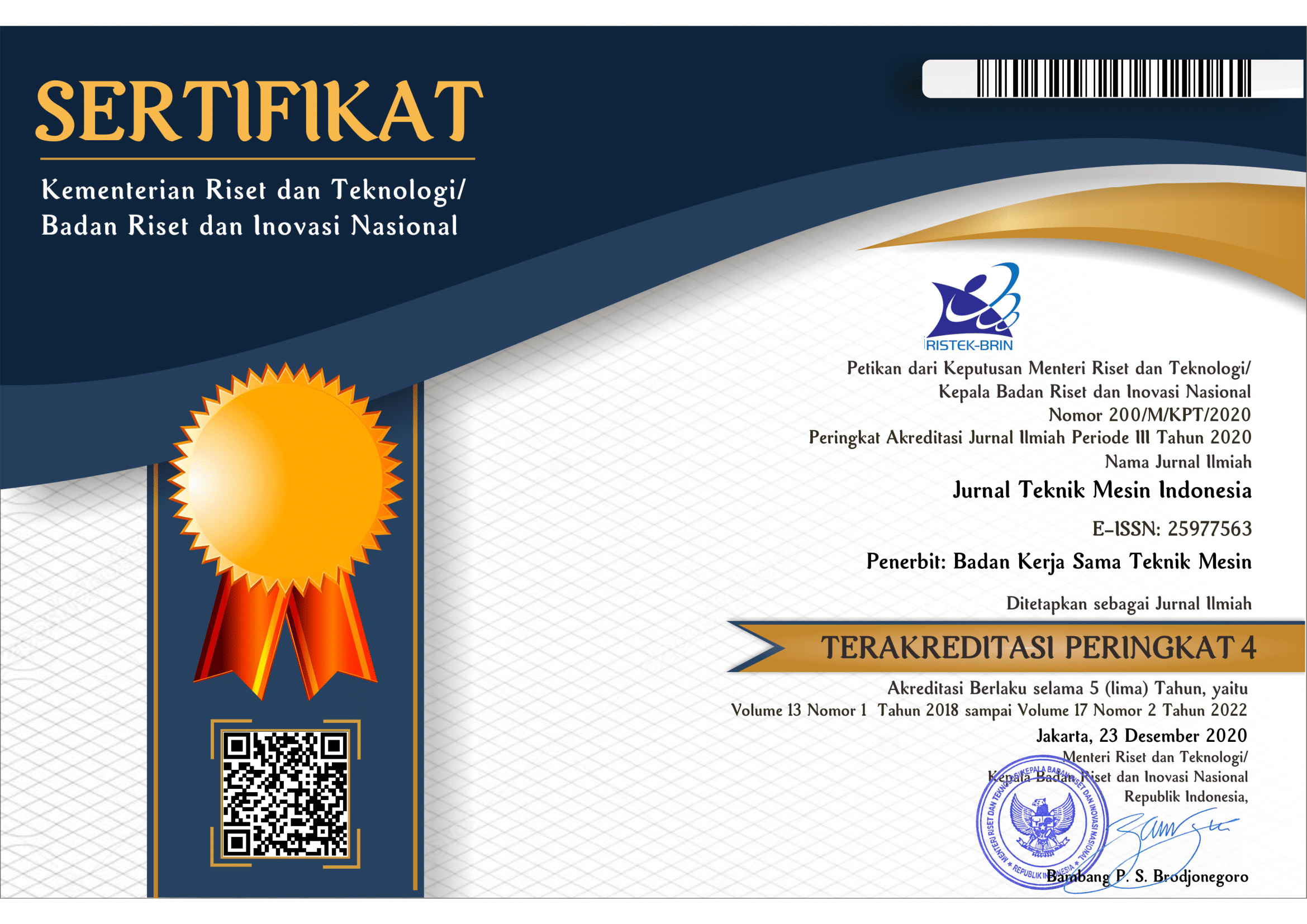Formulation and fabrication of biofoam from rice waste as a substitute for styrofoam in food packaging using the thermopress technique
DOI:
https://doi.org/10.36289/jtmi.v18i2.469Keywords:
biofoam, mesh, weight addition, thermopressAbstract
Styrofoam as food packaging has a bad impact on the environment and the human body because it is made of benzene compounds. The purpose of this research is to look for environmentally friendly and safe food packaging alternatives in the form of biofoam made from waste rice plants and tapioca flour as natural adhesives. The biofoam fabrication process as food packaging is done by mixing straw waste that has been mashed with tapioca solution until it is homogeneous and has a higher viscosity, and then printing using a tool. Thermopress uses a pressure of 9,801 MPa (100 kg) with a temperature of 120°C for 14 minutes of pressing. The variations used are the use of mesh 40, 60, and 80 for the level of roughness of rice straw that has been treated in a crusher. The results of Biofoam testing with the three mesh variations 40, 60, and 80 can decompose inside soil for 28 days, and the results of testing with a mesh of 40 found low water absorption resistance with a weight gain of 36%, and the heat resistance test experienced a weight gain of 1.681%, meanwhile, biofoam with a mesh of 60 has added weight after testing water absorption of 23%, and the heat resistance test has a weight gain of 1%. And on biofoam with mesh 80, there was a weight gain after testing water absorption of 15% and resistance to heat with an increase in weight of 1%.










